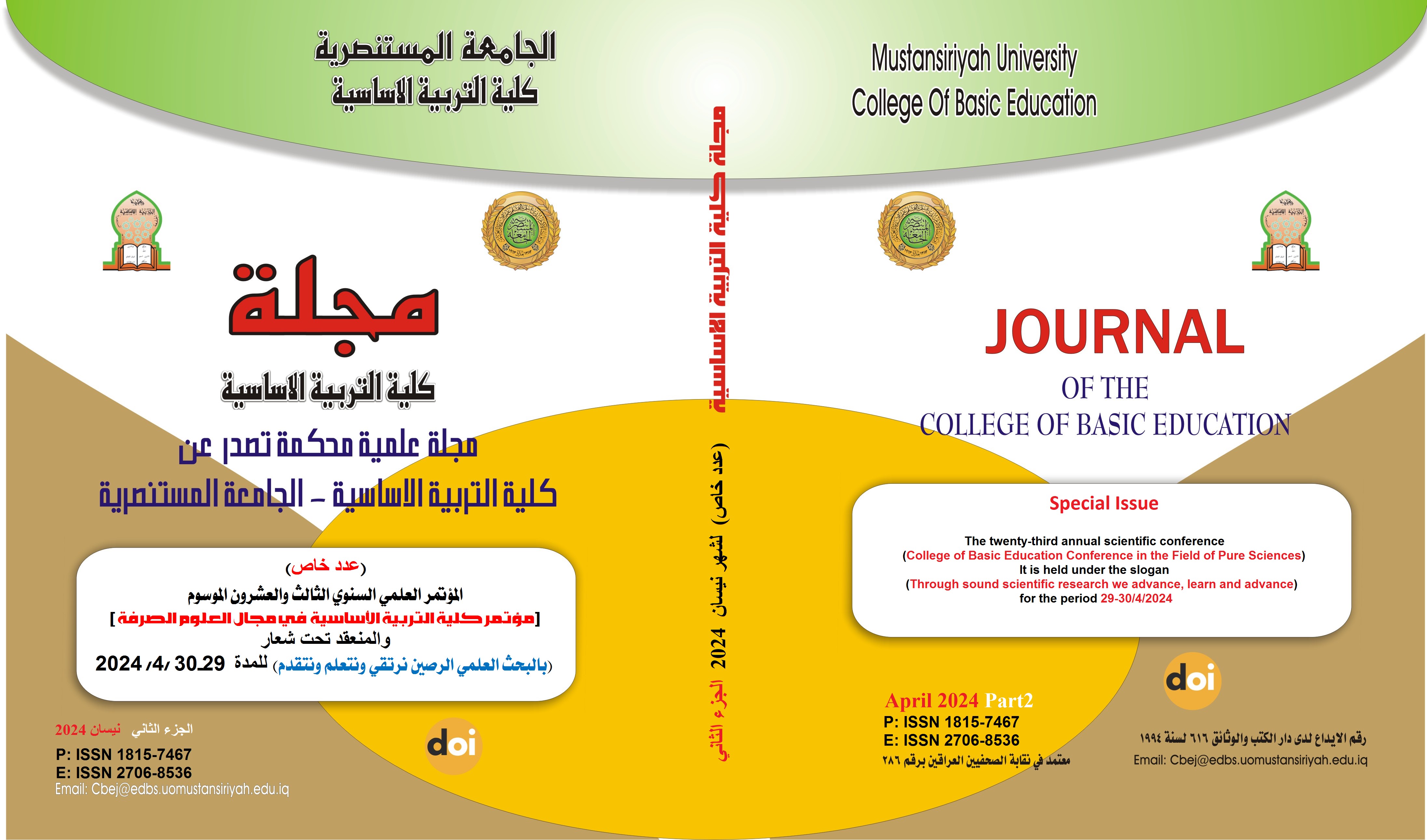"The impact of the bar modeling strategy on the algebraic thinking skills of middle-grade second-graders in mathematics "
Main Article Content
Abstract
Current research aims to identify the impact of the Bar modeling strategy on algebraic thinking skills among middle second graders in mathematics .
The research sample was deliberately selected from the average of second-grade girls in the girls' basement of the Directorate General of Babel Education. It consisted of 60 female students (30) in both the experimental and control groups. Both groups were equal in variables (intelligence, chronological age, previous achievement in mathematics and previous knowledge in mathematics). The experiment was implemented in the first semester of the academic year (2023-2024). The research tool was developed: The Algebraic Think-Skills Test, consisting of 20 multi-choice multiple-choice items with four alternatives, used the) KR-20( equation to calculate the steaminess towards) 77% (of the country's performance. After the application of the experiment, data collection and the use of statistical tools appropriate to current research, the results showed that students in the experimental group who had studied mathematics using the bar modeling strategy outperformed those in the control group who had studied the same subject using the routine method in testing algebraic thinking skills. Based on the results of the research, it was recommended that teachers be trained to use the ribbon modeling strategy effectively in mathematics teaching, that math textbooks be developed along the Singapore Mathematics Curriculum, and that algebraic thinking skills be used to diagnose the extent to which female students have algebra thinking skills. She suggests a similar study to current research on various variables such as the effectiveness of using a bar modeling strategy in developing higher-order thinking skills
Article Details

This work is licensed under a Creative Commons Attribution-ShareAlike 4.0 International License.
